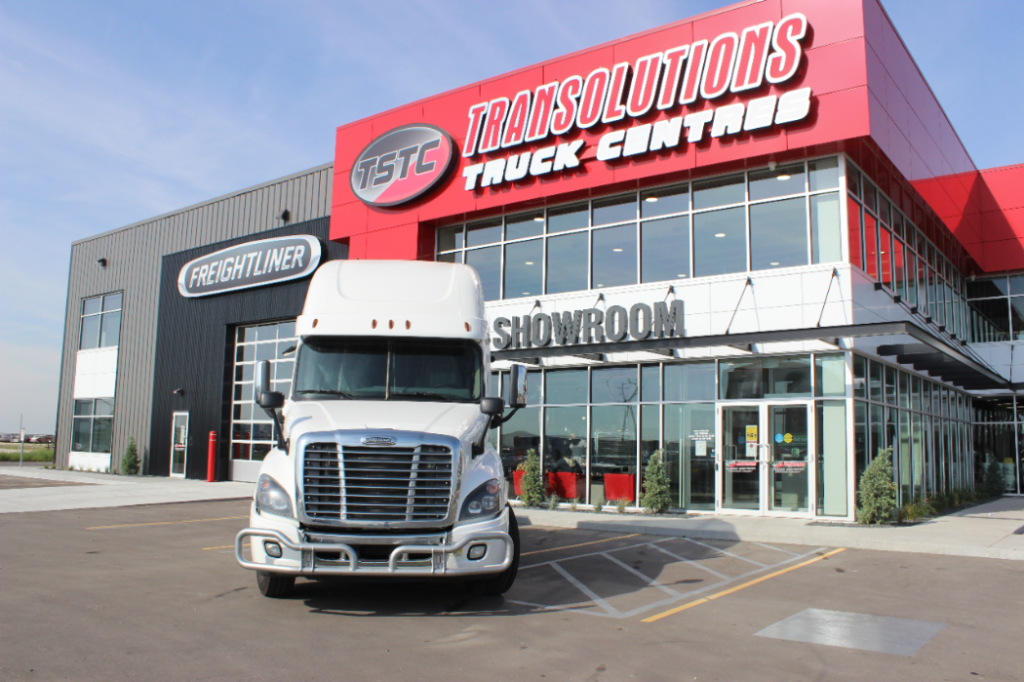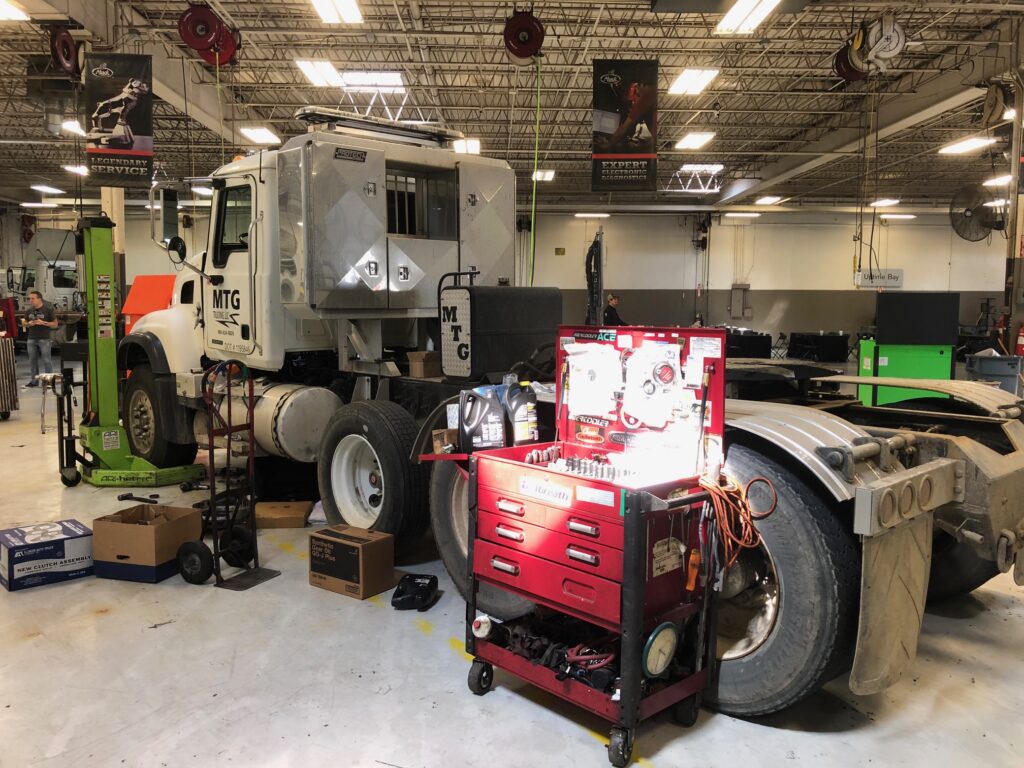Four questions to ask when buying a used truck
If you’re an owner-operator or small fleet owner, the reliability and efficiency of the trucks you put on the road can make or break your business.
Buying a used truck takes a leap of faith, and buyers shouldn’t hesitate to lean heavily on the expertise of a trusted used truck dealer.
“The most common mistake buyers make is not coming in to talk with a qualified used truck salesman,” says David Falk, sales manager at Transolutions Truck Centers in Winnipeg, Man. “There are so many options relating to torque, ratio, horsepower, collision mitigation and new safety technologies and how they affect the truck operationally.”
We asked several experienced used truck professionals what questions buyers should ask – but often don’t – before investing in a used truck.

How much truck can I afford?
Determine how much truck you can afford. Lenders are becoming increasingly wary of financing older, high-mileage trucks, so it may be in your advantage to buy a newer truck on more favorable financing terms.
“What we find interesting is the term and the rate we can get someone on a 2016 can make their payment more a month than if they buy a 2019,” said Shaun Boughen, president of Upper Canada Truck Sales.
He urges buyers to focus on the monthly payment, not just the total purchase price.
“If a guy’s looking for a 2015 or 2016, we can often sell him a 2017 or 2018,” says Boughen. “Newer is better. It has less stress on the powertrain and often comes with some OEM warranty.”
When financing the truck, ensure you understand the amortization and interest rate. Boughen warns some sketchy lenders will offer a 5% interest rate but bury in monthly admin fees that can as much as double the actual rate. “That sleight of hand thing that happens is pretty rampant,” he warns.

What is the truck’s history?
“No one would buy a car without getting a Carfax report and seeing its history,” Boughen says. Yet, many used truck buyers are willing to take the seller’s word on its history.
Make sure you ask for any paperwork related to major repairs.
“All the time we have trade-ins and guys will say they bought it at X dealership and it had a full in-frame, but they have no paperwork. It means nothing,” Boughen says.
Adam Davy, president of Davy Truck Sales in Courtice, Ont., echoes that message, and adds paperwork is important to the finance company is well.
“Finance companies won’t necessarily do the deal if a truck has higher mileage on it an no recent engine work,” he adds.
Is the emissions system working?
Reliability concerns with early generation emissions aftertreatment systems prompted many owner-operators to have them removed, or deleted, from the vehicle. It’s not always obvious that this has been done. Even veteran used truck dealer Davy has unwittingly taken a couple trade-ins that had their emissions systems removed. It was a costly mistake
“We’ve been caught a couple times with guys trying to snowball us with that,” he admits, adding it cost between $25,000 to $30,000 to have those systems replaced. And it’s a growing concern now that the province of Ontario has begun cracking down on trucks with non-compliant emissions systems. Owners of those trucks may be scrambling to unload them – so, buyer beware!
“We see a few. The risk in buying them is that they are not insurable,” adds Falk. “So, if insurance is important to you, don’t buy one.”
Boughen points out emissions system reliability has improved, and “There is no advantage at this point in time in buying a truck that had its DPF system replaced. We want nothing to do with this stuff.”
Falk also suggests asking about the status of the diesel particulate filter (DPF). Has it been recently cleaned, and if not, what is the ash count or percentage of life remaining?
What warranty coverage is available?
Ideally, a late model low-mileage used truck will still have some original OEM warranty coverage. If not, third-party warranty coverage is available and should be considered.
“I’d pay a serious premium to have OEM warranty and the paperwork showing it has that OEM warranty.”
Shaun Boughen, Upper Canada Truck Sales
“Used trucks are inherently tricky to operate from a cost-effective standpoint,” acknowledges Falk. SelecTrucks offers coverage similar to a factory warranty, backed by Daimler Trucks North America. Falk says to look out for deductibles, progressive damage or dollar limitations on claims when selecting a third-party warranty.
“I’d pay a serious premium to have OEM warranty and the paperwork showing it has that OEM warranty,” Boughen adds. “The engine is worth $30,000. The warranty to me is an IQ test, it has to be on your radar right away because it’s a machine and it’s going to break.”
Have your say
This is a moderated forum. Comments will no longer be published unless they are accompanied by a first and last name and a verifiable email address. (Today's Trucking will not publish or share the email address.) Profane language and content deemed to be libelous, racist, or threatening in nature will not be published under any circumstances.
One question I would ask,” if it has 500k miles on it, when should it have an overhaul. It use to be that every 250k is when the engine was overhauled. What amount mileage is it now?